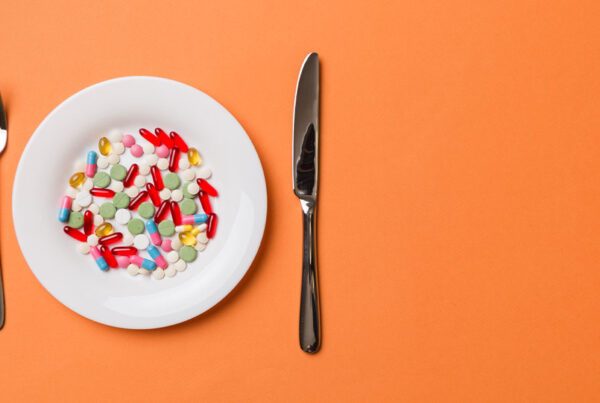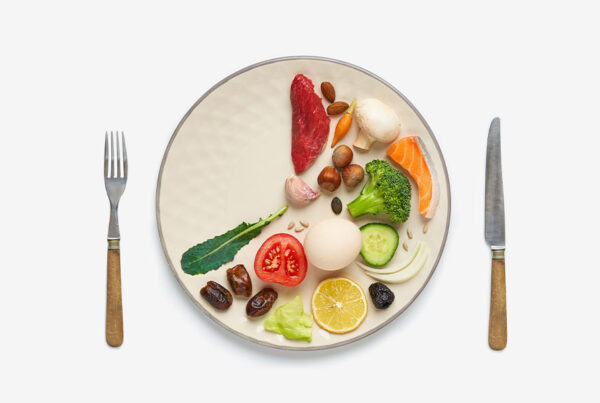Insulin Resistance and Cancer
Those who have Type 2 Diabetes must have heard this term insulin resistance. For those who have not, insulin resistance is the resistance towards the hormone insulin resulting in high blood sugars. With insulin resistance, the body’s cells don’t respond normally to insulin. Glucose can’t enter the cells as easily, so it builds up in the blood. This can eventually lead to Type 2 Diabetes.
It’s reported that chronic hyperinsulinemia (increased state of insulin) is associated with various types of cancer such as colorectal cancer, pancreatic cancer, endometrial cancer and breast cancer. Insulin promotes the production and activity of insulin-like growth factor 1 (IGF1), which can promote cell proliferation in an overnutrition state. Hyperinsulinemia (increased state of insulin) can also affect the production of sex hormones such as androgen and estrogen, which may be associated with cancer growth.
Therefore it’s important to correct your insulin resistance in the body and improve insulin sensitivity. Insulin sensitivity refers to how sensitive the body’s cells are in response to insulin. High insulin sensitivity allows the cells of the body to use blood glucose more effectively, reducing blood sugar.
Few signs of insulin resistance:
● A waistline over 40 inches in men and 35 inches in women
● Blood pressure readings of 130/80 or higher
● A fasting glucose level over 100 mg/dL
● A fasting triglyceride level over 150 mg/dL
● A HDL cholesterol level under 40 mg/dL in men and 50 mg/dL in women
● Skin tags
● Patches of dark, velvety skin called acanthosis nigricans
HOMA- IR is the test that can further help in diagnosing insulin resistance in your body.
Causes for insulin resistance:
● Diet high in refined carbs
● Obesity
● Sedentary lifestyle
● Chronic stress
● Poor gut health
● Smoking/ excessive alcohol intake
● Hormonal imbalance
Few lifestyle changes that are recommended in order to improve insulin sensitivity and decrease insulin resistance are:
● Always choose complex carbs over simple carbs. Avoid foods that are not only high in glycemic index, like sugar, refined flour; but also foods high in glycemic load, such as whole grains. Talk to your nutritionist/ dietitian for further guidance on this.
● No matter what kind of carb you eat, make sure that you are mindful of the amount that you eat. Because the more you eat, the more insulin your body would need. Learn about the glycemic load of foods, knowing that just a glycemic index is not enough.
● Increase fibre intake from plant foods. Make sure that you include a good amount of low glycemic index veggies in your every meal.
● Include high quality fats in your diet, such as oily fish, nuts and seeds, organic eggs and lean meat.
● Some may benefit from reducing carbs further, or follow specific protocols such as time-restricted eating. Discuss about the same with your healthcare professional before starting on the same.
● Keep your gut healthy by including probiotic and prebiotic foods.
● Exercise- Physical activity has a significant positive effect on insulin sensitivity. Indeed, it may have the biggest effect of any measure you could take to improve your insulin sensitivity. Any type of physical activity has the potential to make your insulin work better and combining aerobic activities such as brisk walking, swimming and cycling with resistance training, or weight training, appears to have the greatest effect.
● Sleep well.
● Reduce stress.
● Avoid smoking and drinking alcohol.
Remember, that taking medications is not a permanent solution. Bringing about healthy lifestyle changes is the one that you should be really concentrating on.
Below is the list of healthy foods to incorporate into your diet.

Reference:
https://www.ncbi.nlm.nih.gov/pmc/articles/PMC2815827/#:~:text=Cancer%20and%20insulin%20resistance,-There%20are%20several&text=Insulin%20resistance%20is%20an%20interrupted,cancer%2C15%20and%20breast%20cancer
https://www.researchgate.net/publication/225376577_Insulin_Resistance_and_Cancer_Risk_An_Overview_of_the_Pathogenetic_Mechanisms
https://www.thehealthedgepodcast.com/wp-content/uploads/2017/03/Insulin-and-cancer.pdf
Tags: Diabetes, insulin resistance, insulin sensitivity, diet, nutrition, causes for insulin resistance, chronic hyperinsulinemia, chronic hyperinsulinemia and insulin-like growth factor 1 (IGF1), hyperinsulinemia and cancer growth, complex carbs, simple carbs, glycemic index, glycemic load, exercise, sleep, stress, aerobic exercise, strength training exercise.









